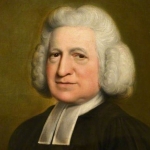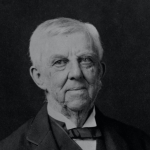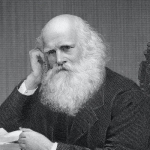For mighty were the auxiliars which then stood
Upon our side, we who were strong in love!
Bliss was it in that dawn to be alive,
But to be young was very heaven!—Oh! times,
In which the meagre, stale, forbidding ways
Of custom, law, and statute, took at once
The attraction of a country in romance!
When Reason seemed the most to assert her rights,
When most intent on making of herself
A prime Enchantress—to assist the work
Which then was going forward in her name!
Not favoured spots alone, but the whole earth,
The beauty wore of promise, that which sets
(As at some moment might not be unfelt
Among the bowers of paradise itself )
The budding rose above the rose full blown.
What temper at the prospect did not wake
To happiness unthought of? The inert
Were roused, and lively natures rapt away!
They who had fed their childhood upon dreams,
The playfellows of fancy, who had made
All powers of swiftness, subtilty, and strength
Their ministers,—who in lordly wise had stirred
Among the grandest objects of the sense,
And dealt with whatsoever they found there
As if they had within some lurking right
To wield it;—they, too, who, of gentle mood,
Had watched all gentle motions, and to these
Had fitted their own thoughts, schemers more wild,
And in the region of their peaceful selves;—
Now was it that both found, the meek and lofty
Did both find, helpers to their heart's desire,
And stuff at hand, plastic as they could wish;
Were called upon to exercise their skill,
Not in Utopia, subterranean fields,
Or some secreted island, Heaven knows where!
But in the very world, which is the world
Of all of us,—the place where in the end
We find our happiness, or not at all!

















Comment form: